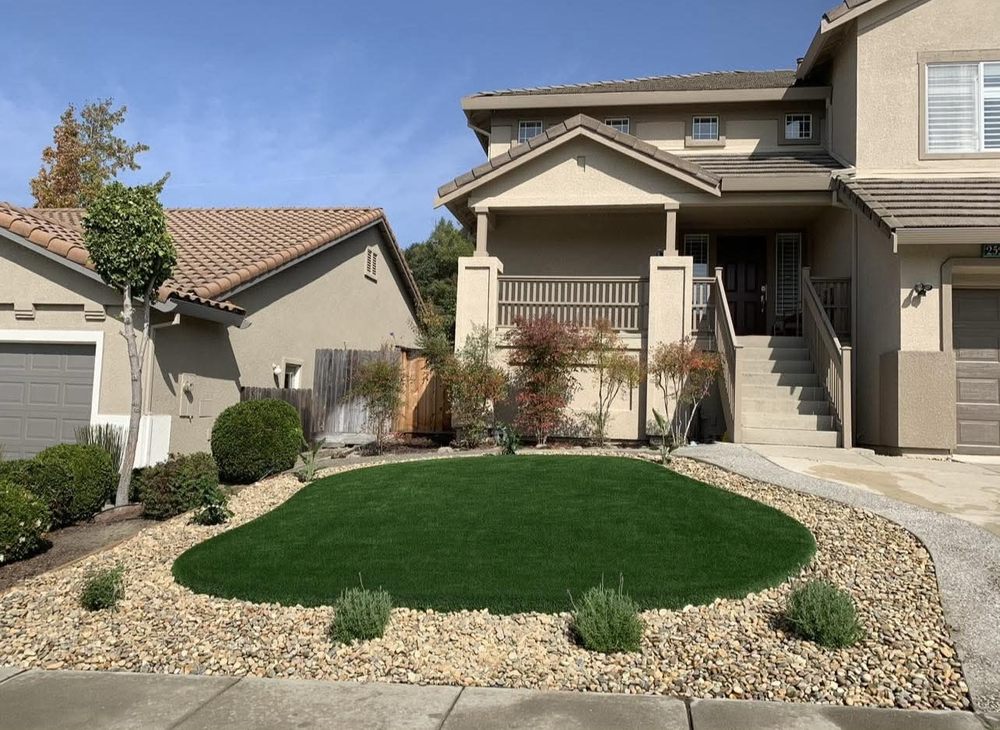
The Art of Sustainable Landscaping: Eco-Friendly Tips and Tricks Nov 13, 2025
To start with, the core of sustainable landscaping lies in choosing native plants. Native plants are naturally adapted to your local climate and soil conditions, which means they require less water and fewer pesticides. They also provide essential habitats for local wildlife, promoting biodiversity. By including a variety of native species in your garden, you create a resilient ecosystem that can withstand environmental changes.
Efficient water management is another critical aspect. Installing a rainwater harvesting system is a practical approach that allows you to capture and store rainwater for your garden's needs. Similarly, implementing drip irrigation systems ensures water is delivered where it’s needed most, minimizing wastage. These techniques not only conserve water but also reduce your utility bills.
Composting is another sustainable practice worth incorporating. By turning kitchen scraps and yard waste into nutrient-rich compost, you can significantly improve soil health without relying on chemical fertilizers. Compost enriches the soil with essential nutrients, enhances its ability to retain moisture, and supports a healthy soil microbial community, all of which are crucial for plant growth.
Incorporating hardscaping elements in your garden can also contribute to its sustainability. Hardscaping, which includes the use of non-living elements like stone, wood, and gravel, can reduce water usage and maintenance. Paths, patios, and walls made from permeable materials allow rainwater to penetrate the soil, reducing runoff and erosion. With the expertise of Digging Dudes, these features can be both functional and aesthetically pleasing.
Creating a habitat-friendly garden can further enhance the sustainability of your landscape. By installing bird feeders or bat houses, and providing a variety of plants that bloom at different times of the year, you can support local wildlife throughout the seasons. Beneficial insects, birds, and small mammals not only add life to your garden but also help control pests, reducing the need for chemical interventions.
Additionally, practicing organic lawn care is beneficial. This involves avoiding synthetic fertilizers and pesticides that can harm the environment and choosing organic alternatives instead. Regular mowing with a sharp blade and leaving grass clippings on the lawn can provide natural fertilization, promoting lush growth.
Finally, it’s essential to regularly assess and adjust your landscaping practices. Sustaining a garden requires a dynamic approach that adapts to changing environments. By conducting soil tests, observing plant health, and staying informed about new sustainable practices, you can ensure that your garden remains eco-friendly.
In conclusion, sustainable landscaping is not just about individual elements but how they interact to create a holistic, self-sufficient ecosystem. By following these eco-friendly tips and utilizing the expertise of Digging Dudes, you can not only enhance your garden’s beauty but also contribute positively to the environment. Embrace this green transformation, and enjoy the benefits of a sustainable landscape that stands the test of time while preserving natural resources for future generations.
/filters:no_upscale()/filters:format(webp)/media/e48e054f-cf2f-4c91-9474-55a3c3773b06.jpeg)